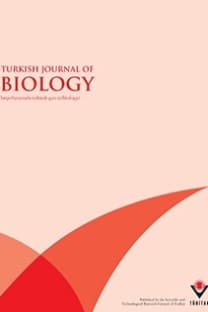Mg deficiency changes the isoenzyme pattern of reactive oxygen species-relatedenzymes and regulates NADPH-oxidase-mediated ROS signaling in cotton
Antioxidant enzymes, cotton, Gossypium hirsutum magnesium deficiency, magnesium starvation, NADPH oxidase, redox regulation,
- ISSN: 1300-0152
- Yayın Aralığı: Yılda 6 Sayı
- Yayıncı: TÜBİTAK
Neha HANDA, Parminder KAUR, Sukhmeen Kaur KOHLI, Renu BHARDWAJ, Anket SHARMA, Vinod KUMAR
RENGİN ÖZGÜR UZİLDAY, BARIŞ UZİLDAY, TOLGA YALÇINKAYA, İSMAİL TÜRKAN
FABIÁN MONLLOR, JAVIER ESPINO, ANA MARÍA MARCHENA, ÁGUEDA ORTIZ, GRACIELA LOZANO, JUAN FRANCISCO GARCÍA, JOSE A. PARIENTE, ANA B. RODRIGUEZ, IGNACIO BEJARANO
Screening of yeast isolates from flowers for effective ethanol production
Asma CHAUDHARY, Shuichi KARITA
Kemal YELEKÇİ, Budullahi İbrahim AUBA
Thi Luong TRAN, Thi Huong HO, Duc Thanh NGUYEN
Artem TYKHOMYROV, Victor NEDZVETSKY, Sergiy SHEMET, Can Ali AĞCA
MILENA JANKOVIC-TOMANIC, DAJANA TODOROVIC, ZORAN STANIVUKOVIC, VESNA PERIC MATARUGA, LUDGER WESSJOHANN, GORAN KALUDJEROVIC
Imdad Ullah KHAN, Yongseok YOON, Wan Hee KIM, Oh-Kyeong KWEON
